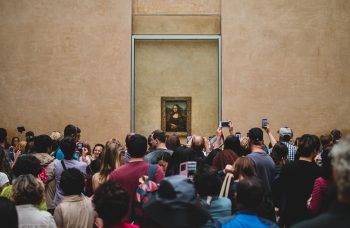In the few months since Notre Dame was engulfed in flame, much has happened. Billionaires have promised funds to rebuild the monument, which has been met with praise and controversy alike, an exhibition of works from the cathedral have been put on show at the J. Paul Getty Museum in California, and there has been plenty of speculations as to what will be the future of the building. However, France’s Parliament has recently approved a law that might shed light on the future of the iconic church.
Parliament’s haste in beginning the process of reconstruction aligns with the promises of the French president Emmanuel Macron who, soon after the fire occurred, promised that the cathedral would be rebuilt within five years. While this news is exciting to some, others feel that the process is going too quickly and that a five-year plan is far too ambitious.
Adresse à la Nation.https://t.co/TgaytkN5KH
— Emmanuel Macron (@EmmanuelMacron) April 16, 2019
The bill passed through will provide oversights for the €850 million (roughly £765 million) of the aforementioned donations, which include massive offerings of €200 million from Bernard Arnault and €100 million from Francois-Henri Pinault alongside donations made by corporations and other individual donors. According to Agence France Presse, Franck Riester, culture minister of France, says the point of the bill is ‘to give Notre-Dame a restoration appropriate for the place it has in the hearts of the French people and in the entire world.’ He also stated that the reconstruction is the ‘hardest thing’ France faces and that the country needs ‘to strengthen the cathedral forever and then restore it.’
Those less comfortable with the bill and the prospect of a speedy reconstruction worry that Parliament and others are quickening the process of rebuilding to ensure the cathedral is back in working condition ahead of the 2024 Olympic games scheduled to be held in Paris. French Parliament member Brigitte Kuster said that ‘[i]mposing a deadline of five years from on high makes no sense.’ In response to those more critical of the plan, Riester retains that their plan is ‘not confusing speed with hurry.’
Naturally, there is a lot of concern around the process of reviving the medieval, monumental place of worship. It stands not only as an icon of France but a place of pilgrimage, whether it be religious or otherwise, for people around the world. Riester reminded Parliament that while the main structure of the cathedral is still there it is by no means secure or safe. This is part of why he has called for fast response to the structure’s needs and it seems he isn’t the only one concerned for the integrity of the building. In a recently published review of the damage, The New York Times reported that the structure, which took the better part of a 1,000 years to become what we know today, was not far from totally collapsing.
Like many issues, though, there is not black and white answer to this issue. The reconstruction of Notre Dame is very much so grey and it will undoubtedly remain that way. However France decides to move forward, they will face praise and adversity.





